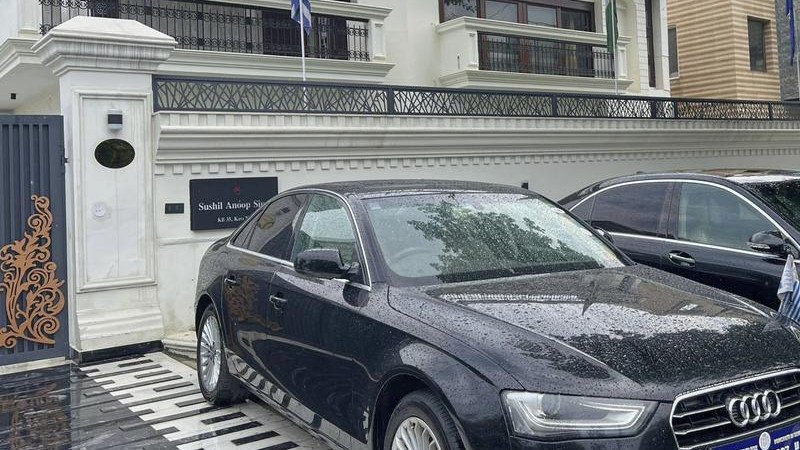THE NEW YORK TIMES: What does it take to make your own embassy? In India, not much
THE NEW YORK TIMES: There are more than 100 diplomatic missions based in India’s capital, New Delhi. What does it take to set up your own?

There are more than 100 diplomatic missions based in India’s capital, New Delhi. What does it take to set up your own?
Not much, if you ask Harshvardhan Jain, aka “Baron HV Jain.”
Rent a bungalow, hoist some flags, park a few luxury cars on the curb, photo-shop yourself into pictures with world leaders, and — voilà! — you have your own embassy.
Sign up to The Nightly's newsletters.
Get the first look at the digital newspaper, curated daily stories and breaking headlines delivered to your inbox.
By continuing you agree to our Terms and Privacy Policy.Until you are caught, that is.
Indian police arrested Jain, 47, on Tuesday for running a fake embassy in a rented residential building in Ghaziabad, a city just outside New Delhi.
This house, police said, alternately acted as the diplomatic mission for Westarctica or the Principality of Seborga or Poulbia Lodonia — depending on the day or the need or the hour.
These entities, technically, are “micronations” — self-proclaimed sovereign states that lack a legal basis for their existence, as they are not recognised by other countries.
For the better part of a decade, such legal inconveniences did little to undermine Jain’s operation.
Police said his building in Ghaziabad, with all its pomp and regalia, was the address for a range of criminal activities, from defrauding people of money by promising employment abroad to running a multinational hawala network — an informal system of transferring money that is illegal in India.
Police officials suggested that Jain had been running his racket since at least 2017, when he declared himself the representative of Westarctica. His ambitions kept expanding from there.
The micronation of Westarctica, in a statement on its website, said “Mr. Jain was an authorised representative engaging in unauthorised activities.” He had been made an “honorary Consul to India” after he made a “generous donation” to Westarctica, the statement said.
The entity’s website says it was set up in 2001 by Travis McHenry, an American citizen, while he was serving in the US Navy. He refers to himself as Grand Duke Travis. In a statement on Westarctica’s Instagram page, Grand Duke Travis said “Baron HV Jain” had been removed from the micronation’s “roster of diplomatic representatives.”
In an email to The New York Times, he added that Jain had been in possession of diplomatic number plates, passports and many other items bearing the seal of Westarctica, none of which he had been authorised to produce.
For almost eight years, Jain had created for himself the “aura” of an important man, said Sushil Ghule, a senior superintendent of police involved in the investigation.
“An undiscerning layman will believe what he sees and cannot tell that it’s all fraudulent,” he said.
In the fake embassy, the police recovered 12 counterfeit passports representing different countries, 20 diplomatic license plates that had been obtained without authorisation, stamps of government departments and agencies, forged documents and foreign currencies — all used to keep up Jain’s persona of a well-connected diplomat.
Police said that Jain had a master’s from a university in London and that he was well-travelled, having established dubious companies in several countries before returning to India. The son of an industrialist, he was booked by police in 2012 for owning a satellite phone, which is prohibited for use in India without a license.
Ghule said police were still looking into the extent of Jain’s activity from the fake embassy. Have they reached out to Westarctica for help with the investigation?
“No,” Ghule said.
This article originally appeared in The New York Times.
© 2025 The New York Times Company
Originally published on The New York Times
